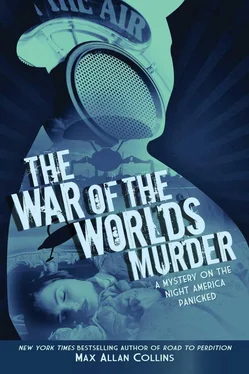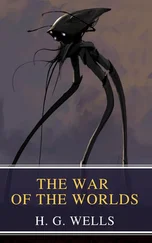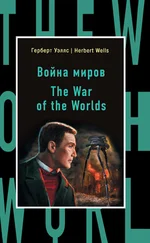Max Collins - The War of the Worlds Murder
Здесь есть возможность читать онлайн «Max Collins - The War of the Worlds Murder» весь текст электронной книги совершенно бесплатно (целиком полную версию без сокращений). В некоторых случаях можно слушать аудио, скачать через торрент в формате fb2 и присутствует краткое содержание. Жанр: Исторический детектив, на английском языке. Описание произведения, (предисловие) а так же отзывы посетителей доступны на портале библиотеки ЛибКат.
- Название:The War of the Worlds Murder
- Автор:
- Жанр:
- Год:неизвестен
- ISBN:нет данных
- Рейтинг книги:5 / 5. Голосов: 1
-
Избранное:Добавить в избранное
- Отзывы:
-
Ваша оценка:
- 100
- 1
- 2
- 3
- 4
- 5
The War of the Worlds Murder: краткое содержание, описание и аннотация
Предлагаем к чтению аннотацию, описание, краткое содержание или предисловие (зависит от того, что написал сам автор книги «The War of the Worlds Murder»). Если вы не нашли необходимую информацию о книге — напишите в комментариях, мы постараемся отыскать её.
The War of the Worlds Murder — читать онлайн бесплатно полную книгу (весь текст) целиком
Ниже представлен текст книги, разбитый по страницам. Система сохранения места последней прочитанной страницы, позволяет с удобством читать онлайн бесплатно книгу «The War of the Worlds Murder», без необходимости каждый раз заново искать на чём Вы остановились. Поставьте закладку, и сможете в любой момент перейти на страницу, на которой закончили чтение.
Интервал:
Закладка:
Gibson nodded. “Thank you, George.”
George grinned and nodded.
Gibson stepped back onto the elevator, wondering how long it would be before George was asleep again.
In upstate New York, at the state troopers’ HQ, Rusty was puffing away, his corncob pipe pluming like a tugboat smokestack.
On the radio, reporter Carl Phillips was reading the listeners an urgent telegram that had just arrived for Professor Pierson at Princeton Observatory.
“ ‘Nine-fifteen p.m. eastern standard time. Seismograph registered shock of almost earthquake intensity occurring within a radius of twenty miles of Princeton. Please investigate. Signed, Lloyd Gray, Chief of Astronomical Division.’ ”
Frowning at the word “earthquake,” which echoed his earlier fears about his parents in New Jersey, Rusty turned the volume dial up on the radio, even louder.
The professor was confirming that this meteorite was of an “unusual size,” and that the disturbances on Mars had no bearing on the event-it was merely coincidental.
“However,” the professor was saying, “ we shall conduct a search ….”
Rusty wondered if he should notify the corporal, who was at the duty desk, two floors below, particularly when the next bulletin reported “a huge, flaming object, believed to be a meteorite,” falling on a farm near Grovers Mill, not far from Trenton.
The flash in the sky (the radio said) could be seen within a radius of hundreds of miles, the impact heard as far north as Elizabeth, New Jersey.
Somehow, when the reporter turned the air back over to the New York studio, where a pianist was tinkling away at “I’m Always Chasing Rainbows,” Rusty was even more convinced something was wrong, really wrong….
Thinking about his folks, the teletype trooper began to tremble; his eyes teared up, and it wasn’t from the smoke his corncob pipe was producing.
He would tell the duty corporal to turn on the radio and hear for himself. Who knew? They might need to start mobilizing, to help the New Jersey troopers out, any time now.
Slight, spectacled Sheldon Judcroft, a student member of the University Press Club at Princeton, was at a desk in the student newspaper office, working on an editorial protesting the radical-right radio preachings of Father Coughlin, preferring the quiet here to the hubbub of his fraternity.
The phone rang and something amazing happened: the city desk editor of a real newspaper, the Philadelphia Inquirer , was on the line.
“We have a radio report of a meteorite that has hit near Princeton,” the voice said (male, urgent, yet matter-of-fact). “Place called Grovers Mill. What do you know about it?”
“Nothing-I don’t even have the radio on.”
“Oh. Okay.”
And the phone clicked dead.
Sheldon thought about the call. He felt he’d somehow failed to measure up, faced with a real newspaper story. He turned on the radio and switched the dial until he found the report and listened.
Indeed, a meteor did seem to have struck in New Jersey, a big one that had been heard for miles around (though, oddly, Sheldon hadn’t heard it himself, nor felt the impact…too wrapped up in the Father Coughlin piece, maybe).
Then something else amazing happened: Sheldon found himself calling Arthur Barrington, Chair of the Princeton Geology Department, at home.
After Sheldon’s apologies and explanation, the Department Chair said, “I haven’t heard anything about this either, son…but it sounds big.”
“Yes it does, sir.”
“Mr. Judcroft, are you by nature adventurous?”
“Of course,” Sheldon squeaked. “I’m a newsman!”
“Good. I’ll swing by and pick you up.”
“Pick me up?”
“If ever there was a job for journalism and geology, this is it…. Put on something warm.”
“Yes, sir!”
Sheldon hung up, and got his notebook.
And a sweater.
At 8:12 P.M., Edgar Bergen turned his microphone over to a guest artist, Nelson Eddy.
The host of The Chase and Sanborn Hour -thanks to the vocal gymnastics required to keep such characters as Charlie McCarthy, Mortimer Snerd and Effie Clinker as vivid and real as himself (more so, some would say)-needed a nice break after each week’s opening monologue, which he and Charlie (which is to say, Bergen himself) did alone.
So tonight, while Bergen sipped a glass of water, Eddy-singing star of radio and film-began to warble “Neapolitan Love Song.”
Bergen felt confident about this booking-Eddy, half of a wildly popular screen team (the other half, of course, was Jeanette MacDonald), would surely keep listeners rapt at their radios. The singer seemed a fine preventative, if not cure, for that spreading disease of dial-turning (pushbuttons and airplane dials made it so easy!) that especially plagued a rigidly formatted show like Bergen and McCarthy. Listeners knew just how long they could sample the wares of other stations, before returning for the next dose of humor from the ventriloquist and his dummy-unless, of course, some other show caught the dial-turner’s attention and held it….
Still, Bergen figured he didn’t have much to worry about. In addition to Eddy, he had Madeline Carroll and Dorothy Lamour, two top actresses, and Dottie Lamour would sing several of her biggest hits.
So even in the unlikely event that Eddy lost a listener, momentarily, that listener would be back.
After all, who would want to miss out on all that excitement?
CHAPTER SEVEN
At 8:11 P.M., E.S.T., in Studio One, Bernard Herrmann’s undistinctive dance-band music was interrupted by announcer Kenny Delmar, saying: “We take you now to Grovers Mill, New Jersey.”
After a long, rather ominous beat, the sound of the remote location kicked in, as all of the actors, on their feet, circling about a single microphone like Indians around a campfire of war, created a convincing aural approximation of a much larger, milling crowd.
“Ladies and gentlemen,” Frank Readick said into another mike, reading from his script, “this is Carl Phillips again, out at the Wilmuth farm, Grovers Mill, New Jersey. Professor Pierson and myself made the eleven miles from Princeton in ten minutes.”
Ora Nichols had already dropped the needle on a disc that layered police sirens and the sound of wind into background of the “Carl Phillips” remote report.
Readick, as Phillips, was describing the scene as being like something out of a modern Arabian Nights.
“…I guess that’s the thing, directly in front of me, half buried in a vast pit. Must have struck with terrific force. The ground is…covered with splinters of a tree it must have struck on its way down. What I can see of the object itself doesn’t look very much like a meteor…at least not the meteors I’ve seen. It looks more like a huge cylinder. It has a diameter of…of…what would you say, Professor Pierson?”
All of that had been heard by Grandfather Chapman and his three grandchildren in the living room of the Chapman farmhouse, just outside Grovers Mill, the airplane dial having been turned to avoid a boring song by Nelson Eddy.
Even Grandfather, who wasn’t keen on much that was current, knew after weeks and weeks of Charlie McCarthy just how long the family could get away with cruising rival stations, looking for something more interesting to pass a few minutes than a sissy tenor.
“Grandpa,” the younger boy, Leroy, said, “ we’re Grovers Mill!”
Grandfather, sitting forward on his armchair, said, “We sure are, Leroy. Did he say Wilson farm?”
Les said, “I think he said Wil muth .”
“City reporter musta got it wrong,” Grandfather said. “They must be at the Wilson farm…. Turn that up, a shade.”
Читать дальшеИнтервал:
Закладка:
Похожие книги на «The War of the Worlds Murder»
Представляем Вашему вниманию похожие книги на «The War of the Worlds Murder» списком для выбора. Мы отобрали схожую по названию и смыслу литературу в надежде предоставить читателям больше вариантов отыскать новые, интересные, ещё непрочитанные произведения.
Обсуждение, отзывы о книге «The War of the Worlds Murder» и просто собственные мнения читателей. Оставьте ваши комментарии, напишите, что Вы думаете о произведении, его смысле или главных героях. Укажите что конкретно понравилось, а что нет, и почему Вы так считаете.

![Герберт Уэллс - The War of the Worlds [С англо-русским словарем]](/books/26611/gerbert-uells-the-war-of-the-worlds-s-anglo-thumb.webp)










